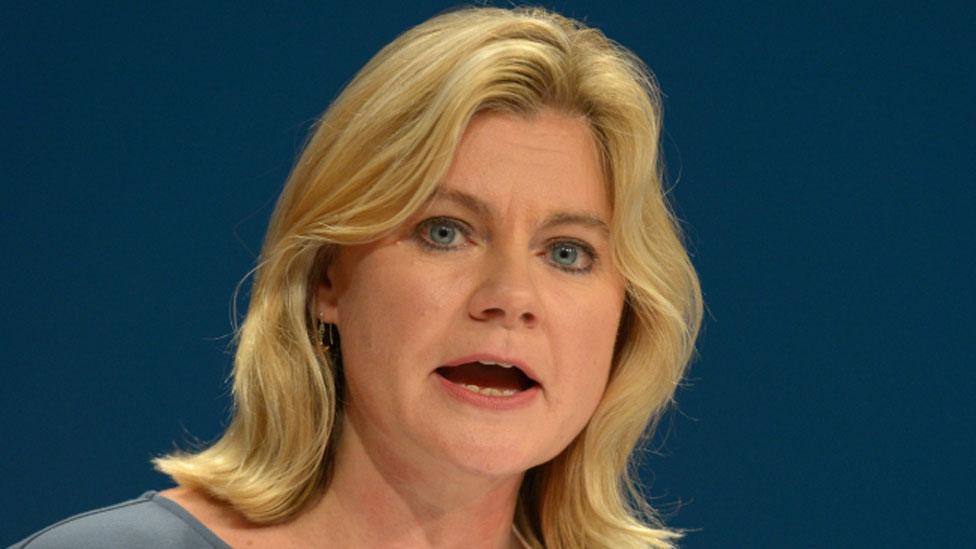Greening wants grammars to work for 'ordinary families'
- Published

Justine Greening has launched a consultation on supporting "ordinary working families"
Education Secretary Justine Greening wants England's schools, including a new generation of grammars, to do more for "ordinary working families".
But a new analysis from the government shows a majority of selective school places go to more affluent families.
Helping struggling, working families, missed by other poverty measures, has become the focus of Ms Greening's education reforms.
Recent figures showed that .
These "ordinary working families" are defined as not the poorest, but living on "modest incomes", and likely to live in suburbs and coastal towns away from London.
Ms Greening is to give a speech at St Mary's University in London on Thursday saying the school system needs to find ways to support these families, along with the help already targeted at the most extremely disadvantaged.
The university published research recently showing that counting pupils eligible for free school meals had become an .
The researchers said that focusing on these pupils missed families who might be working multiple jobs and living in precarious financial circumstances, but above the threshold for free meals.
The Department for Education has published a consultation on Wednesday on how schools should serve these "ordinary working families", described by Prime Minister Theresa May as "just managing".
The consultation says that while there has been much attention and support for the very poorest families, there is "very limited understanding" of the experiences of children in families of "modest incomes".
The education secretary is committed to increase selection and to create new grammar schools.
And Ms Greening has rejected criticism that this will reinforce social divides.
But the government's analysis in the consultation shows that more affluent children are currently much more likely to take places in grammar schools.
In grammar schools, the consultation shows that 36% of places are taken by children from families with below-average incomes but not receiving free meals, compared with 53% of places taken by families with above-average incomes.
In non-selective secondary schools, there are 35% of pupils from these "ordinary" families, and 32% from more affluent families, a much lower proportion than in grammars.
- Published4 April 2017
- Published30 March 2017
- Published16 March 2017
- Published4 October 2016